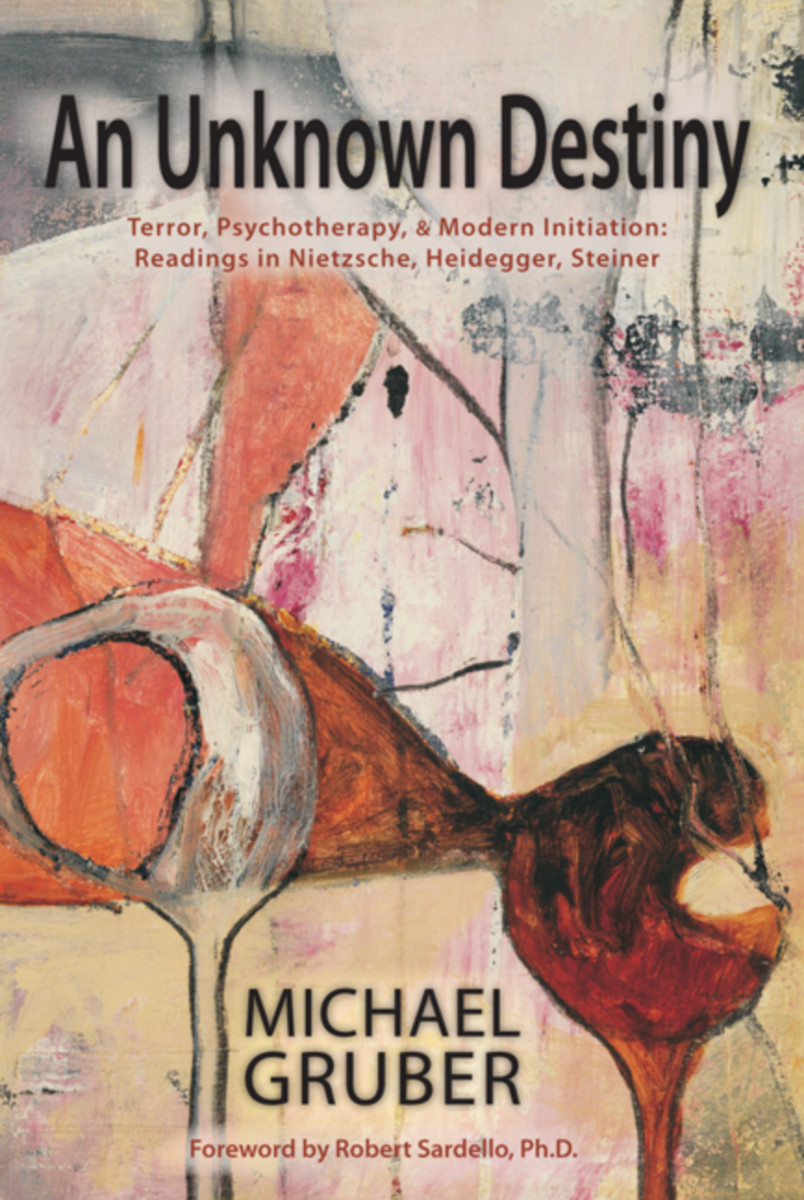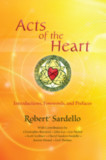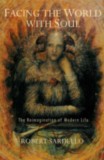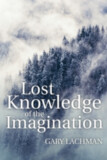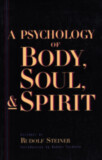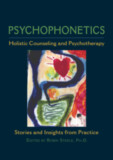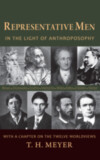An Unknown Destiny
Terror, Psychotherapy, and Modern Initiation
Readings in Nietzsche, Heidegger, Steiner
- Publisher
Lindisfarne Books - Published
20th November 2008 - ISBN 9781584200642
- Language English
- Pages 192 pp.
“I have never been particularly fond of Nietzsche, probably because I saw many of my fellow students, years ago, taken, fascinated, even entranced, with his passion, but with no way to let that passion open into something creative. At last, that view changes here. A central effect of Gruber’s creative approach to Nietzsche, is to demonstrate, not simply talk about, the fact that it is necessary to throw oneself across the threshold into initiatory realms, into the completely unknown. Initiatory experience cannot be planned; one cannot, in advance, know where one is going or what will happen. Even more, this chopping off of one’s purposive, calculating head must be done with the greatest enthusiasm possible. Still, why choose Nietzsche to exemplify this necessity? Part of the answer lies in suggesting that Nietzsche’s program for abandoning our mental structures is exactly what is needed to enter the unknown and to develop the capacity of letting life unfold from the unknown, unknowingly, and with the fullest attention.” — Robert Sardello (from the foreword)
Beginning with a consideration of Nietzsche’s inflammatory and critical insight that the modern world is framed by the death of God, Michael Gruber confronts contemporary disenchantment and its necessary offspring, the “universalization of terror.” By making truth relative, negating the value of beauty, and rendering questions about the good dubious if not obsolete, terror permeates all aspects of our psychosocial existence with the threat of dehumanization. In response to this terror, which is the fundamental mood of our time, Gruber advocates re-imagining our destiny as a path of initiation.
Describing an inner awakening to the spiritual world, whose earthly manifestation of its inherent divinity invites and necessitates our conscious participation, Gruber offers readings and practices that promote the incarnation of “noble souls.” Referring to the work of Nietzsche, Heidegger, and Steiner, An Unknown Destiny describes how psychotherapy can move beyond healing the ego to transcending the ego. Gruber shows how opening the soul to meditative or intuitive forms of thinking can contribute to the development of new soul faculties of perception and to the experience of moral freedom. Most important, he shows how the incomplete and continuously evolving Mystery of Golgotha can inspire the emergence and presence of modern human beings infused with Christ consciousness—reverence, wisdom, peace, and love.
“The challenge of this book is to radicalize therapy, to see that all of psychology to this point has been nothing more than a preparatory and transitional discipline, a training of consciousness for modern initiation, which now takes place with others, rather than through one’s solitary meditative practices. I hope that at least a few therapists will feel the truth of what Michael Gruber has written and take up the magnificent work that he proposes.” — Robert Sardello (from the foreword)
“An Unknown Destiny is like a stream of fresh water in which all psychotherapeutic approaches would do well to immerse and possibly transform. Gruber’s reading of the works of Nietzsche, Heidegger, and Steiner concerning the realm of terror that pervades our world, is not only a tour de force of reflection upon the writings of these seminal figures, but a clear and highly accessible one. Michael Gruber has done a great service to psychotherapy. I learned a lot.”
—Nathan Schwartz-Salant, Ph.D., Jungian analyst, author of The Mystery of Human Relationship and The Black Nightgown
“Michael Gruber brings together key points in Nietzsche, Heidegger, and Steiner to point out the connection between psychotherapy and the path of initiation appropriate to our time. In this way, he locates the essential spiritual challenges from our greatest thinkers. Gruber has an appreciation of the mythic that approaches, at times, that of A.K. Coomaraswamy. But he does more. He shows how living thinking, the fresh experience of being, and the awakening from technology’s hypnotic thrall, can all become realities for us. In doing so, Gruber clears a path for the self-aware individual to become no longer a passive recipient of mass culture, but a point source of love and wisdom.”—Michael Lipson, Ph.D, psychotherapist, author of Stairway of Surprise
“Michael Gruber has written a truly remarkable, courageous-beyond-belief book. He shows how modern psychology serves terrorist structures of consciousness. He further shows that only a truly spiritual psychology can break through these forms. His creative reading of Nietzsche opens the path of therapy as modern initiation. His work with Rudolf Steiner reveals the presence of pathologies of spirit that are still being approached as psychological difficulties; and how to approach them anew. Finally, his understanding of Heidegger shows the way to the imaginal reality of the unity of person–world. A truly breakthrough book!”—Robert Sardello, Ph.D., author of Love and the World and Silence, cofounder and codirector of The School of Spiritual Psychology
C O N T E N T S:
Foreword by Robert Sardello, PhD
Introduction
- “From Ornithology to a Love Supreme: Overcoming the Forces of Gravity, and the Teaching of Amor Fati”
- “Zarathustra’s Convalescence: Cognitive Expansions and Inner Wisdom”
- “With Nietzsche on the Road from Revenge to Redemption”
- “Traumatic Pain: Psychotherapeutic Conversation between Mediumship and Soul Wisdom”
- “Psychotherapy as a Vocation: Giving Voice to Soul”
- “Intuitive and Inceptual Thinking: The Meditative Paths of Steiner and Heidegger”
- “While My Conscience Explodes . . .”
Bibliography
Index
Michael Gruber
Michael Gruber is an existential analyst in private practice in New York City. His work focuses on the dynamics of the therapeutic relationship and cultivates attention to how language, dreaming, and not knowing create possibilities for transformations in consciousness. He is a longtime student of mystical philosophy and Anthroposophy.


